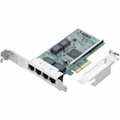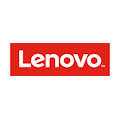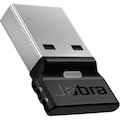- General Information
- Manufacturer
- Intel Corporation
- Manufacturer Website Address
- http://www.intel.co.uk
- Brand Name
- Intel
- Product Series
- 800
- Product Type
- 100Gigabit Ethernet Card
Intel® Ethernet 800 Series supports up to 100Gb/s throughput for a variety of workloads.
Enterprise:
- Broad physical interfaces support, thorough test and validation with ecosystem devices for compatibility
- Extensive Microsoft solution support
Communications:
- Flexible Ethernet Port Configuration with link modes supporting different fan-in or fan-out connections
- Leveraging the Intel Ethernet 800 Series' fully programmable pipeline, DDP can add or modify protocols on-demand improving packet processing efficiency
- Enhanced DPDK for Network Functions Virtualization acceleration, advanced packet forwarding, and highly effective packet processing
- Supports both IEEE 1588 PTP v1 and v2 with per-packet time stamping
Cloud:
- Up to 100Gb/s throughput for diverse workloads in modern data centers
- Support both iWARP and RoCEv2 RDMA, selectable via software per port for low-latency, high-throughput workloads
- Application Device Queues (ADQ) to increase application predictability, reduce application latency and improve application throughput
Intel® Ethernet Products are customers' choice for extensive compatibility, performance assurance, broad product selection, and world-wide support.
All Intel® Ethernet 800 Series Controllers¹ include these technologies: | Supports both iWARP and RoCEv2 RDMA
RDMA is a host-offload, host-bypass technology that enables a direct memory-to-memory data communication between applications over a network. RDMA provides high throughput and low-latency performance for high-speed Ethernet by eliminating three major sources of networking overhead: TCP/IP stack process, memory copies, and application context switches.
RoCEv2 (RDMA over Converged Ethernet):
RoCEv2 substitutes the InfiniBand physical layer and data link layer with Ethernet, operates on top of UDP/ IP, and is routable over IP networks.
iWARP, IETF standard protocols based:
Delivers RDMA on top of the pervasive TCP/IP protocol. iWARPRDMA runs over standard network and transport layers and works with all Ethernet network infrastructure. TCP provides flow control and congestion management and does not require a lossless Ethernet network. iWARP is a highly routable and scalable RDMA implementation. Intel Ethernet 800 Series supports both RoCEv2 and iWARP that are selectable via software per port to provide the flexibility that customers need.
Deliver consistent application performance with Application Device Queues (ADQ)
As modern data centers scale, a key challenge is to provide scalable and predictable application-level performance. ADQ technology improves performance scalability and predictability by dedicating specific resources to key workloads. ADQ enables application-specific data steering, signaling, and rate limiting using an optimized application thread to device data path.
- Technical Information
- Features
- Quality of Service (QoS)
- Precision Time Protocol (PTP)
- RDMA Support
- RDMA over Converged Ethernet (RoCE) v2
- iSCSI Extensions over RDMA (iSER)
- Data Plane Development Kit (DPDK)
- iWARP Support
- User Datagram Protocol (UDP)
- Interfaces/Ports
- Host Interface
- PCI Express 4.0 x16
- Total Number of Ports
- 1
- Media & Performance
- Media Type Supported
- Optical Fiber
- Maximum Data Transfer Rate
- 100 Gbit/s
- Network & Communication
- Network Technology
- 100GBase-CR4
- 100GBase-KR4
- 100GBase-CR2
- 50GBase-CR2
- 50GBase-CR
- 25GBase-CR
- 25GBase-KR
- 10GBase-KR
- Physical Characteristics
- Form Factor
- Plug-in Card
- Miscellaneous
- Application/Usage
- Enterprise
- Data Center
- Network
- Device Supported
- Server








